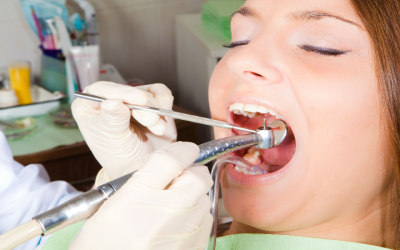Tooth infections are a condition that should never be taken lightly. When an infection begins in your tooth, you may not notice it right away. As the condition progresses, it quickly begins to exhibit a myriad of symptoms. It is important for you to be able to recognize the symptoms of tooth infections so you will know precisely when to seek dental treatment. If caught early enough, tooth infections can be brought under control, so you can avoid a tooth extraction. Through prompt care from the family dentist in Camp Hill PA, you can overcome your tooth infection, so the health of your tooth is not compromised.
How Does the Dentist Care for an Infected Tooth?
An infection in the tooth, also called an abscess, can sometimes be difficult to treat. This depends on how severe the infection is and if it has spread to the gum or the underlying bone tissue. In most infections, the dentist will begin treating the tooth through antibiotic therapy. Sometimes, strong antibiotics are needed, to aggressively attack the infection and stop it from spreading. Your dentist will be able to inform you of what type of medication will work best for your type of infection.
Sometimes, antibiotic therapy alone is not enough to cure you of the infection. When a severe infection is going on in the tooth, the family dentist in Camp Hill PA may need to perform a root canal. A root canal removes all of the inner portion of the tooth, including the soft tissue and the nerve. Through the removal of this tissue, much of the infection can be removed and the tooth can be packed with medication until it heals. The dentist will make sure the infection is completely gone before permanently sealing the tooth.
If you have an infection in your tooth, prompt dental care is crucial. Infections can spread to the gum tissue, bone and eventually can even go to your heart. For more information on how your dental health can be improved, visit marinakandglossner.com. They can provide you with all of the treatment procedures you and your family need, for healthy teeth and gums.


